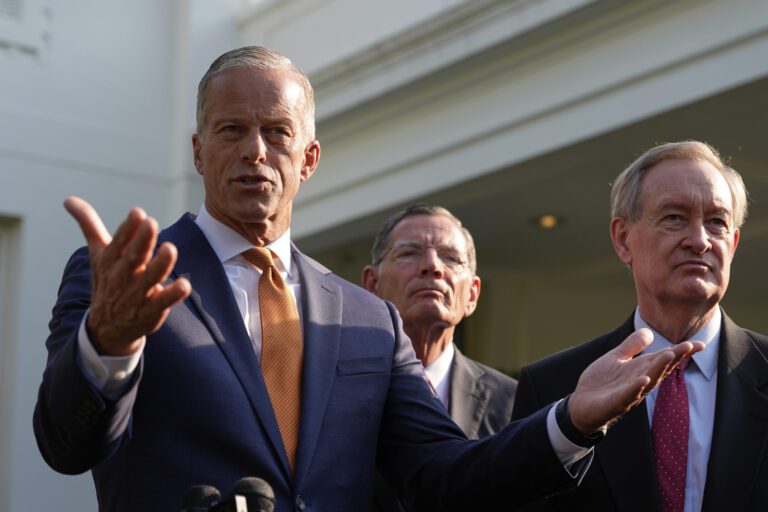The One Big Beautiful Bill Act: A Legislative Challenge for Republicans
As the political landscape heats up on Capitol Hill, the Biden administration is focused on securing a compromise with congressional Republicans over the One Big Beautiful Bill Act. Despite high-profile visits from Vice President Vance and White House Chief of Staff Susie Wiles, bipartisan discussions continue to stall as senators grapple with contentious issues.
Current Status of the One Big Beautiful Bill Act
Senate Republicans have engaged in lengthy discussions throughout the week, but consensus remains elusive. These debates come at a critical time, particularly after the Senate Finance Committee revised the bill to address key topics:
- Tax Policies
- Clean Energy Credits
- Medicaid Reforms
While the revised text was released on Monday night, it quickly became clear that the lawmakers were not close to reaching an agreement.
Key Republican Concerns
Republican senators have voiced significant hesitations about the proposed bill:
- Senator Ron Johnson argues that the spending levels exceed his desired 2019 thresholds.
- Senator Rand Paul firmly opposes the bill due to a proposed $5 trillion increase in the debt limit.
- Senators Josh Hawley and Lisa Murkowski are concerned that the Medicaid reforms outlined by the House go too far.
Legislative Timeline and Concerns
Despite these concerns, senators wrapped up their workweek early, departing Washington on Wednesday. They are expected to return late Monday, along with House members, to continue legislative activities for a mere four days before breaking for a week-long July 4 vacation.
- Senator John Thune aims for the bill to hit the president’s desk by America’s 249th birthday, just over two weeks away.
- In contrast, Johnson cautions against rushing the legislative process: “This is an artificial deadline. There is no reason to be trying to rush this,” he stated, advocating instead for a deliberate work schedule.
Budget and Debt Limit Complications
Dr. Paul’s apprehensions extend to broader fiscal policy, expressing concern that the administration does not prioritize spending restraint. The inclusion of a $5 trillion debt limit hike in both the House and Senate versions signals, he believes, a lack of commitment to addressing America’s spending issues.
- Key Quote: “I think conservatives across the country are very worried about expanding the credit line [by] $5 trillion. Congress has shown … irresponsibility,” Dr. Paul argues.
The Debt Ceiling Deadlock
With a slim majority in the 53-seat Senate, Thune must navigate these varying concerns. The debt limit issue may present a significant advantage for Democrats if negotiations falter.
- Secretary Bessent has warned of an impending breach of the debt limit as early as August, which could trigger a financial crisis reminiscent of the 2008 downturn. He stresses the urgency of raising the debt ceiling before Congress breaks for an extended recess.
Potential Outcomes
If Republicans fail to unify in the next few weeks, President Biden may have to broker a deal with Senate Minority Leader Chuck Schumer. The $5 trillion debt limit escalation within the One Big Beautiful Bill Act can bypass traditional obstacles through a simple majority via the budget reconciliation process.
- If the act does not pass before the debt limit "X-date," Democrats may find themselves in the driver’s seat for negotiations, complicating the legislative landscape.
Conclusion
As discussions over the One Big Beautiful Bill Act proceed, the stakes are high for all lawmakers involved. The outcome of these negotiations will have lasting implications for fiscal policy and the broader political climate leading up to the upcoming holiday recess. Staying informed on these developments is essential for understanding the future of U.S. legislative action.
For more insights into federal spending and legislative processes, you can visit Congress.gov or read more about the implications of debt limits on Forbes.


